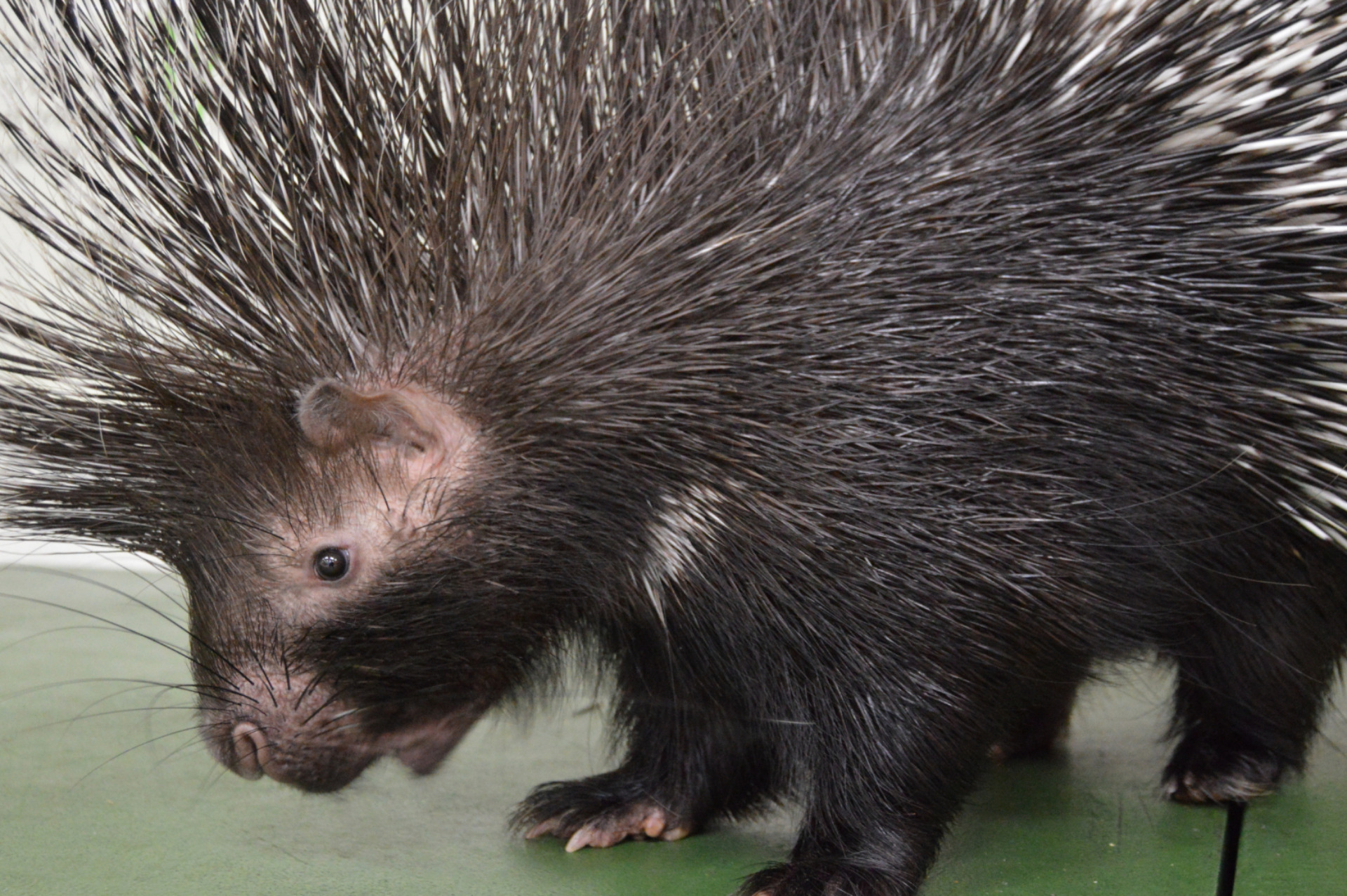Cape Porcupine

Basic Information:
Scientific Name: Hystrix africaeaustralis
Habitat: The Cape porcupine is found across North Africa and Sub-Saharan Africa as well as Italy.
Diet: Cape porcupines are herbivores and eat roots, bulbs, and leaves, but are also known to eat insects, small vertebrates, and carrion.
Size: 2 to 3 feet long
Weight: 22 to 66 pounds
Lifespan: 14.5 years according to AZA Species Survival Statistics
Distribution Map:
I.U.C.N. Conservation Status:

What does this mean?
Least Concern – a species determined by the International Union for Conservation of Nature (I.U.C.N.) to be pervasive, abundant, and thriving.
Our Cape Porcupines:
Buttercup (Female) – Born April 2, 2018
About Cape Porcupines:
Cape Porcupines are one of the largest rodents in the world and the largest porcupine species! Found in Northern African countries such as Morocco, Sub-Saharan countries such as Tanzania and Ethiopia, and even on mainland Italy and Sicily, unlike their North and South American cousins, they are not arboreal and spend most of their time on the ground foraging for food. Their quills are also much larger than other porcupine species and can be between 12 and 13 inches long. While they serve the same purpose of defending against predators and other threats, Cape Porcupines have a few other uses for them. After raising their quills, they tend to rattle them and stomp their feet as a threat first. If this doesn’t work, they will run backwards and slam into their target. This usually does the trick in repelling the enemy!
Did You Know?!
- Cape porcupines are nocturnal and forage alone at night. They can travel up to 9 miles in their search for food.
- Cape porcupines are monogamous and live in small family groups, called prickles, that are comprised of an adult pair or an adult pair with offspring.
- Like other rodents, cape porcupines have a single pair of sharp, continually growing incisor teeth that they use to gnaw and rip tough plant material. They must continually chew hard objects to file their teeth down.
